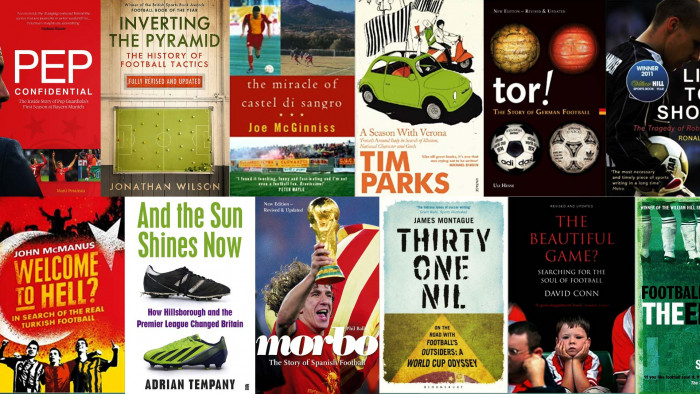How did Tiger Woods go from being the best in the world to a punchline?
Has there been a more dramatic decline?


The news that Tiger Woods had been arrested for an alleged DUI offence could have been received in a number of ways.
It could have brought sympathy, and widespread calls to help him out, or it could have brought the response we saw on Twitter, where people opted for the open goal of mocking his mugshot, a flurry of reaction memes bearing the face of the golfer.
This took place with only a small amount of blowback, too, as if it’s now entirely reasonable to treat a man who was once arguably the world’s biggest sports star as little more than a punchline.
Woods is not without his flaws, of course, with many pointing to the repeated infidelity which led to the breakup of his marriage to Elin Nordegren. However, regardless of his past, Woods’ fall from grace has seemingly skipped the tragic period and moved straight to mockery.
Still just 41 years of age, Woods has played just one tournament from start to finish since 2015, finishing 15th at the Hero World Challenge in December 2016. It was supposed to be the precursor to a proper return to competitive golf for a man who was once favourite to win more or less every tournament he entered. But now, such a return has never looked further away.
Woods issued a public apology following his arrest, which he put down to ‘an unexpected reaction to prescribed medications’. However, once more, the conversation around his future has nothing to do with the sport in which he made his name.
His last victory came at the Bridgestone Invitational in 2013, but since then he has missed eight cuts - more than the entire 2006-2013 period. The years since have brought an even greater unravelling of the Tiger Woods persona, something which ESPN’s Wright Thompson links back to the death of Woods’ father Earl in this fantastic article.
But for some reason his decline is significantly more striking than many others, with the possible exception of Paul Gascoigne. And, as is the case with Gazza, many of those who view him as a figure of fun see him as only that, struggling to make mention of his past greatness besides vague allusions to wasted talent.
Of course, to call Woods’ talent ‘wasted’ would itself be a misnomer. His 79 PGA tour wins make him the second most successful golfer of all time, while only Jack Nicklaus has more major titles than the Californian.
It is here where it can benefit a sportsman to spread out his victories. Andre Agassi’s tennis career spans a comparable time period to Woods’, and 60 singles titles, but there were never the unsustainable highs to make the late-career drought so telling. Going from four wins per year to one to none isn’t the same as the run of 7-4-6-0-0 that Woods suffered before his mini-revival in 2012 and 2013.
Woods is more like Fernando Torres or Ronaldo, footballers who were so great early on in their careers that they had further to fall. It’s the difference between losing a match 4-3 after trailing 4-0 and losing by the same scoreline after leading by three.
But Torres is now seen largely as a tragic figure, or at least he was during his barren spell at Chelsea. What makes Woods different?

The misdemeanours away from the golf course may play a part for some - it would be wrong to ignore that. Woods’ status as someone who has wronged others contributes to the ease with which some are able to mock his misfortune, in much the same way that John Terry’s antics on and off the field have made it easier for opposing fans to mock his 2008 Champions League final penalty miss and subsequent embarrassing moments.
But while Terry’s reputation can see him portrayed as a pantomime villain, Woods’ crime lies elsewhere.
At the height of his talent, there was perhaps not the same promotion of the personal. No one tried as hard to make him an everyman as we might have seen if he’d begun his career in the present day, and that didn’t seem to be a massive problem to Woods himself. He was paid to play golf, and he was brilliant at that, so plenty of his self-promotion didn’t go far beyond the job at hand.
Some could take pride in seeing him struggle on the course because that was 90% of who he was, if not more, but there is less of a balance when it comes to non-sporting matters, something which he never voluntarily elevated to the same level. Most of his endorsements were promoted by Woods the golfer rather than Woods the man, in comparison to the less rigid marketing surrounding the likes of David Beckham and even Wayne Rooney, and there’s a sense that the man being mocked in mugshot memes is a man who people don’t really know, and who didn’t ask for any of this.
We are given the impression that, once a sportsman goes beyond a certain level of success and acclaim, they’re fair game. The problem here is that, once the success dries out, the mockery remains unaffected, as if to say ‘having been good once’ is the only requirement.
We saw this with Freddy Adu when the former United States soccer star and one-time next big thing was seen hosting an event at a club in Washington DC. Take a look on social media today and you’ll still hear people asking “Isn’t he a nightclub promoter now?” - occasionally the demand to revel in a fall from grace is so great that even facts are secondary.
It wouldn’t be too big a surprise to see Woods’ arrest develop into something more over the coming months and years in a giant game of internet Chinese whispers.

We might have already seen Tiger Woods play his last major, or even his last professional golf tournament altogether.
Injuries have halted his momentum in recent years, and after a number of stalled attempts to return to the game in earnest he may decide the time is right to officially call it a day. That will depend on how much he feels he needs golf, and whether he has enough else going on in his life. Based on Thompson’s profile, and from looking simply at the fact that he is unlikely to remember a time where golf wasn’t part of his life, that day might never come.
However, we need to decide what we’re doing when we precision Woods as a figure of fun. Are we taking a few jabs at a man who has enough success to absorb it, or are we kicking a man when he’s down and calling over our friends so they can watch us kick him?
What happened to the missing step, the moments of sympathy or the calls to help a man who is clearly struggling. Have we just made a group decision to skip that out?
(Images: Rex)
Latest
Related Reviews and Shortlists









